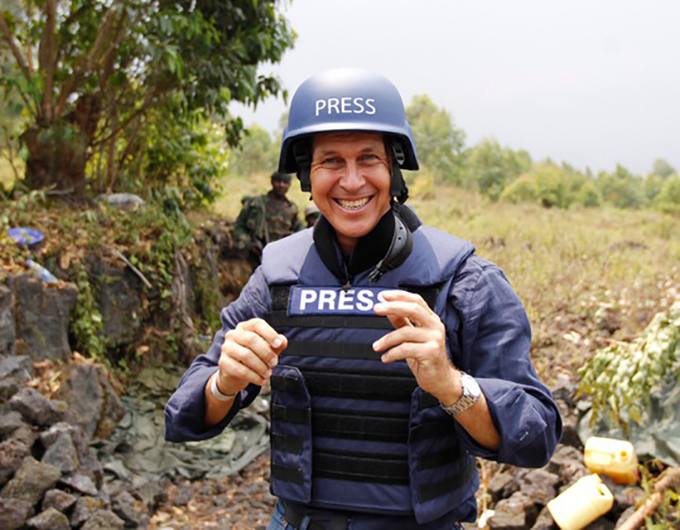
SYDNEY (The Australian/Pacific Media Watch): The Australian journalist and academic who spent more than a year in an Egyptian prison has welcomed Foreign Minister Julie Bishop’s recent boost for his media freedom cause but warned that Canberra should use its new United Nations human rights status to “gain leverage”.
Former Al Jazeera foreign correspondent Peter Greste, who was earlier this year appointed professor as the UNESCO chair in journalism and communication at the University of Queensland, last week launched a new independent body dedicated to campaigning for reporters whose “voices have been stifled” by authorities around the world.
His crusade for global press freedom received a boost from Foreign Minister Bishop when she made her first public statement on Myanmar’s jailing of two Reuters journalists, The Australian reports.
Bishop spoke for the first time about the journalists’ plight after being contacted by the newspaper following Greste’s call for the Australian government to muster all of its diplomatic might to influence its regional neighbours on the issue.
The Alliance for Journalists’ Freedom was established last week with a mission to advocate for press freedom in Australia and the Asia-Pacific region.
Greste, who launched the new initiative while being awarded the Australian Press Council’s 2018 Press Freedom Medal on Thursday, told The Australian that while Ms Bishop would be advocating behind the scenes for the Reuters journalists, it was “important that she makes it publicly clear where she stands on this issue”.
“If we want to be taken seriously as a country that defends human rights and the principles of a liberal democracy, then we need to make sure that we publicly restate those positions and make sure that those people, those governments who we’re close to, follow the same principles,” he said, urging the minister to leverage Australia’s new-found position as a member of the UN Human Rights Commission.
‘Taken seriously’
“If the Australian government wants to be taken seriously — I know it will do — it needs to make sure that it applies those principles with all of those governments that it has leverage with, and that includes the Myanmar government.”
Bishop said in a statement to The Australian that the Australian embassy in Yangon had “registered Australia’s concerns” about the jailed Reuters journalists with the Myanmar government and that her officials were “pursuing other avenues to draw attention to their plight”.
“We continue to emphasise to the Myanmar government that a free and functioning media is an essential part of a modern democracy,” Bishop said, adding that embassy officials had “attended all court hearings as observers, to underline our interest in the case”.
Greste welcomed the comments as a positive step forward in the fight for the reporters, who were arrested last year after investigating an alleged act of genocide against a group of Rohingya people, a persecuted minority in Myanmar’s north.
He said global press freedom was at its lowest point in 13 years and was “trending downwards”, warning that Myanmar’s transition to democracy was at stake.
“Freedom of speech must surely underpin any functioning democracy, any functioning state; having the press as an independent watchdog is absolutely vital,” he said.
Philippines focus
Greste has also singled out the Philippines as a focus for lobbying by the AJF, citing “deeply troubling attacks on the press” by President Rodrigo Duterte, who banned two reporters from the presidential palace in February and has previously been accused of ordering journalists to be killed.
He also threw his support behind an Amnesty International campaign for the release of more than 120 journalists jailed in Turkey as part of a ruthless government crackdown.
Locally, Greste renewed calls for journalists and their sources to be protected from government intrusion.
“I’ve said many times before I’m really concerned that what we’re doing is allowing our obsession with national security to undermine press freedom,” Greste said, warning that media freedom was being “chipped away” by legislation aimed at fighting terrorism.
He welcomed the federal government’s decision to revisit its proposed espionage legislation, urging legislators to “go back to first principles” of openness and transparency.
This work is licensed under a Creative Commons Attribution-NonCommercial 3




